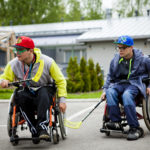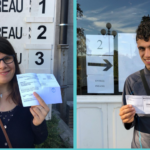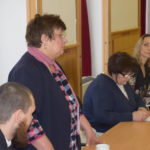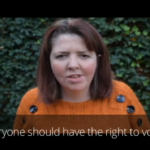The RESPID project logoClick here for the easy-to-read version
What are the best ways to support adults with intellectual disabilities on their way to an independent life? This is the question RESPID tried to answer, an Erasmus+ project run by our members PSONI (Poland), Rytmus (Czech Republic) and ZPMPvSR (Slovakia), as well as the Italian organisation Il Cerchio. The project partners shared their experiences and developed good practices in the following areas:
1) Supported employment
2) Supported living arrangements
3) Cooperation with parents of people with intellectual disabilities
4) Supporting people with intellectual disabilities after the death of their parents
5) Parenthood of people with intellectual disabilities
6) Leisure time activities for people with intellectual disabilities
All the materials developed, including five videos are available in Czech, English, Italian, Polish and Slovakian on the project website.

Easy-to-read version
Click on a word which is in bold to read what it means.
How to support adults with intellectual disabilities
to live independently
There is a project called RESPID.
The project looks at the best ways to support adults
with intellectual disabilities to live independently.
It is run by some members of Inclusion Europe:
- PSONI from Poland.
PSONI stands for the Polish Association
for Persons with Intellectual Disability.
- Rytmus from the Czech Republic.
They work for people with disabilities, especially intellectual disabilities.
- ZPMPvSR from Slovakia.
They work for people with intellectual disabilities in Slovakia.
It is also run by an Italian organisation called Il Cerchio.
Il Cerchio is not a member of Inclusion Europe.
The project is supported by Erasmus+.
Erasmus+ is a programme of the European Union.
The programme supports education in Europe.
The project partners talked about their experiences
working with people with intellectual disabilities.
Together, they agreed good ways of working on 5 topics.
These are the 5 topics:
1) How people with intellectual disabilities can get a job
2) How people with intellectual disabilities can get their own place to live
3) How we can support the parents of people with intellectual disabilities
4) How we can support people with intellectual disabilities when their parents die
5) How we can support people with intellectual disabilities
when they have children
6) How we can create activities that people with intellectual disabilities can do in their free time.
The results of the project have been made in Czech, English, Italian, Polish and Slovakian.[:]







